Chestnuts roasting on an open fire? More like chestnuts choking out the wildlife. Invasive water chestnuts, that is. That is why a group of volunteers met at Ice House Pond on Saturday July 20, to try to control this vigorously spreading, invasive, aquatic plant.
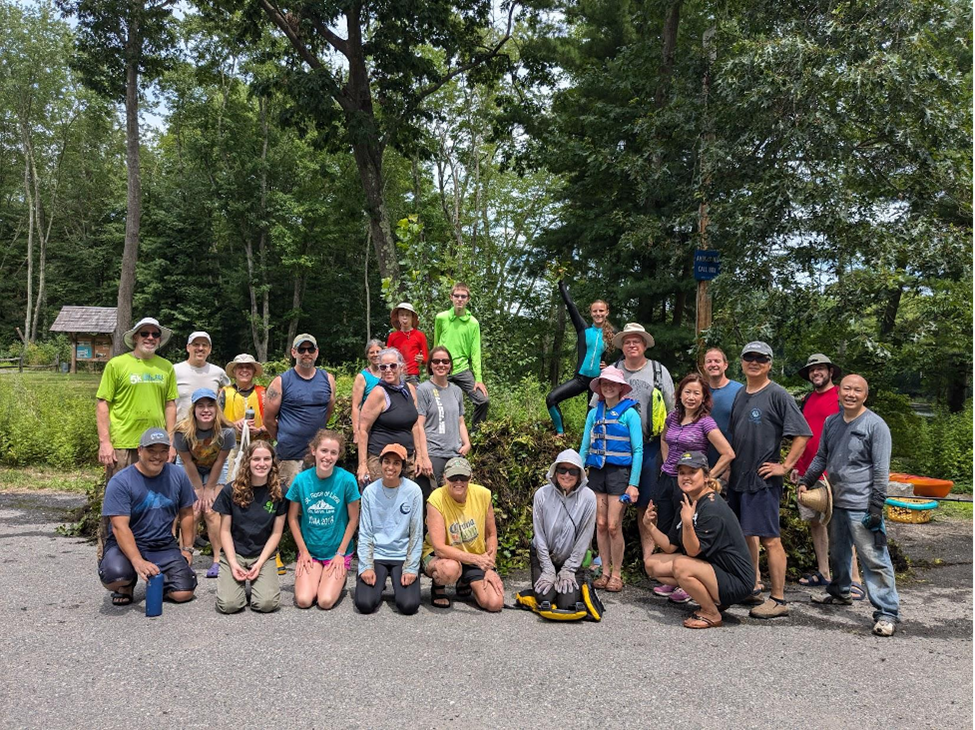
According to Massachusetts Department of Conservation and Recreation, water chestnuts (Trapa natans), spread to form a mat of vegetation on the surface of the water, blocking light to other plants. As the abundant plant matter eventually dies and decays, it consumes oxygen from the water which means less oxygen for fish to survive. Water chestnut spreads by forming a spiky nut that looks like a medieval mace. In the autumn, these nuts drop to the sediment and sprout up to fifteen new plants with long, ropey roots stretching up to the surface. These roots also interfere with recreational uses such as boating and fishing.
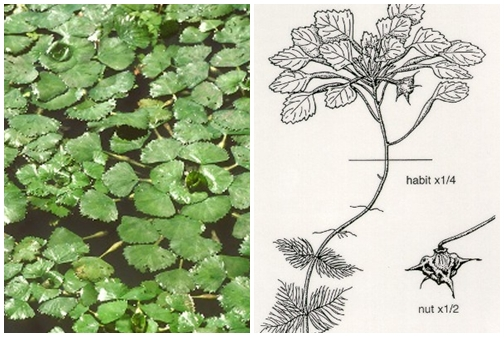
To stop this cycle of reproduction, Acton’s Conservation Commission and the Organization for the Assabet, Sudbury and Concord Rivers (OARS) organized the biannual water chestnut pull at Ice House Pond. OARS is a non-profit organization that protects, improves, and preserves these local rivers. Paddle Boston provided a fleet of canoes to assist with the effort.
But the hard work was done by forty-five volunteers – some with their own canoes, kayaks and paddleboards – who spread over Ice House Pond to attack this invasive plant. Boats left shore with empty baskets and paddled back to shore loaded with water chestnut plants. Helpers on the shore emptied the loaded baskets in a pile in the parking lot, returned empty baskets, and shoved the boats off for more loads.
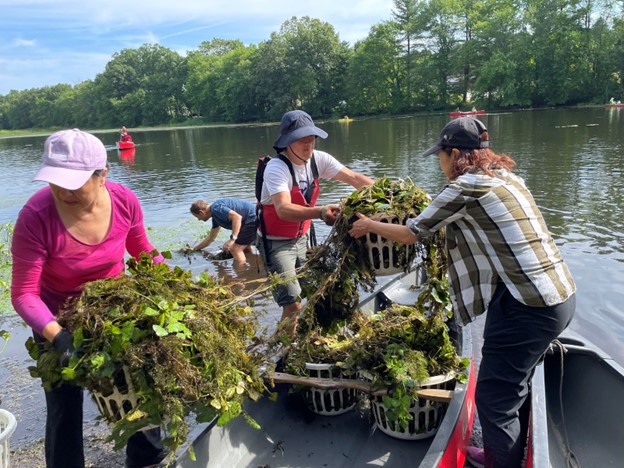
Ian Bergemann, Acton’s Land Stewardship Coordinator and event organizer, reports that three hundred fifty-five basketfuls, or approximately 17,000 water chestnuts, now sit decomposing in a pile in the parking lot. They will be buried later.
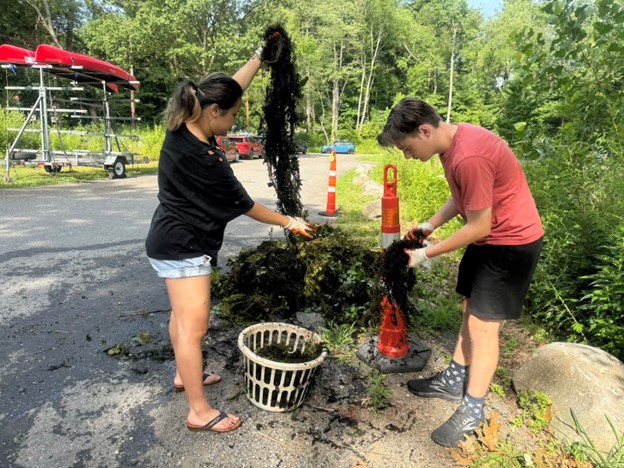
Clean work it is not. After three hours, the volunteers were sopping with mucky pond water. But somehow they seemed to be having fun. Many of the volunteers would be paddling elsewhere on a beautiful weekend day. But this was paddling with a purpose. The work was made more enjoyable by the conversations on the water with like-minded citizens working together and pitching in where needed to keep Ice House Pond a healthy ecosystem for all to enjoy.
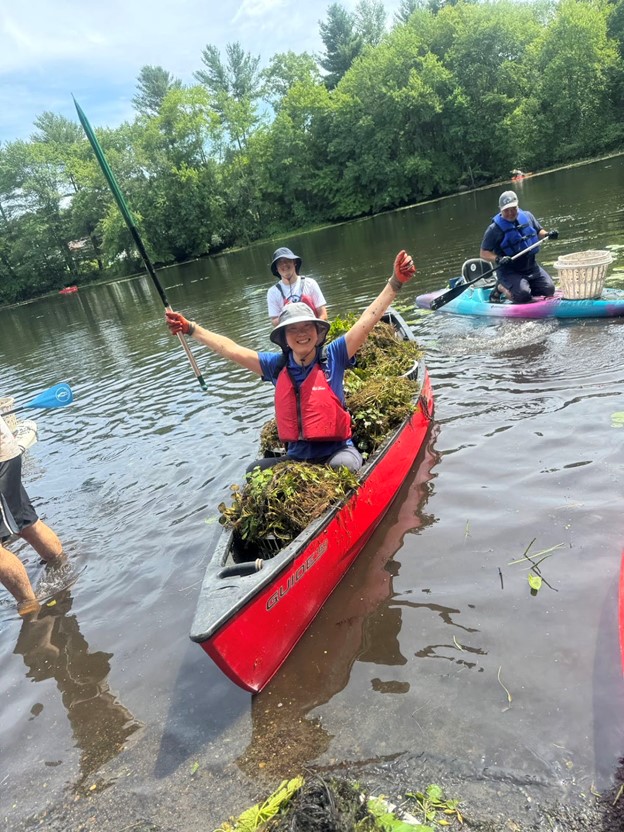
When asked about their reaction to the event, responses were enthusiastic. Rick Jian wrote, “Very glad to see so many young people getting involved in such a great activity!” and Jianyin Shi chimed in with, “It was a fun and learning experience!” Linda Gu added, ”So many invasive plants, I wish I had larger boats, longer hands, and bigger basket.”
A land-based volunteer, Yaping Ren wrote, ”I worked on land. We helped unload the bucket fully filled with water chestnuts from boat, then we moved them from pond side to a dry place bucket by bucket. I didn’t realize how bad the invasive species are until I saw the water chestnut pile was stacked bigger and bigger.”
The next water chestnut pull will be scheduled for this fall.
Tom Wolf has been a resident of Acton since 2001 and is a volunteer on the Land Steward Committee.
Kaiping Fu contributed additional reporting.
